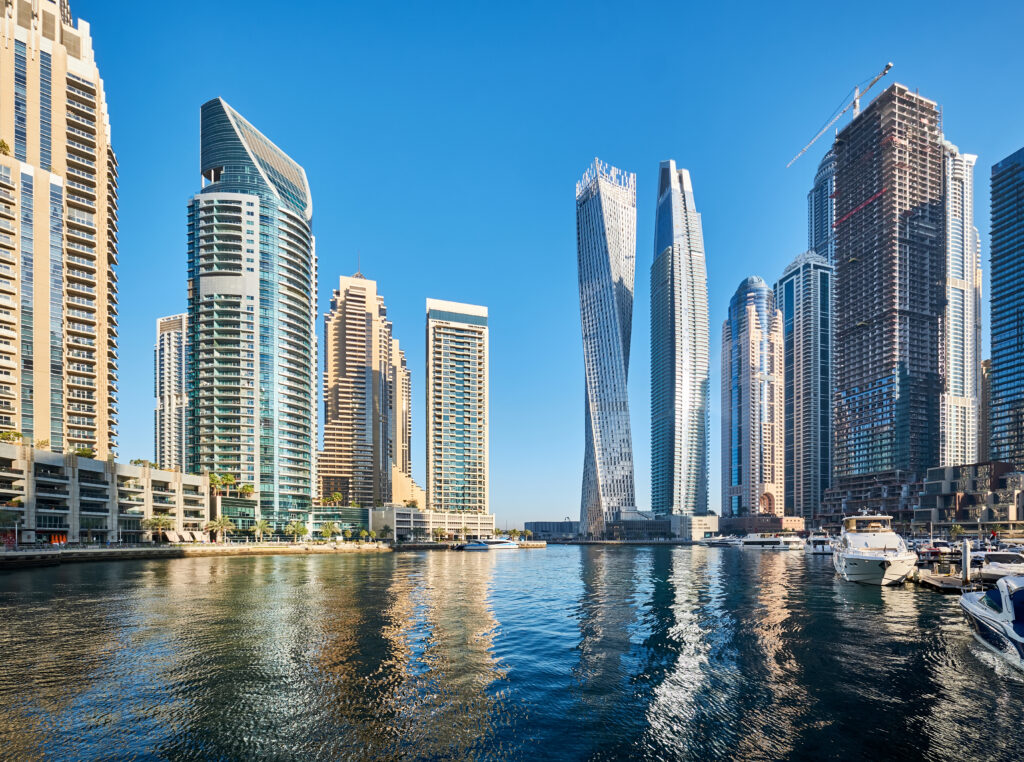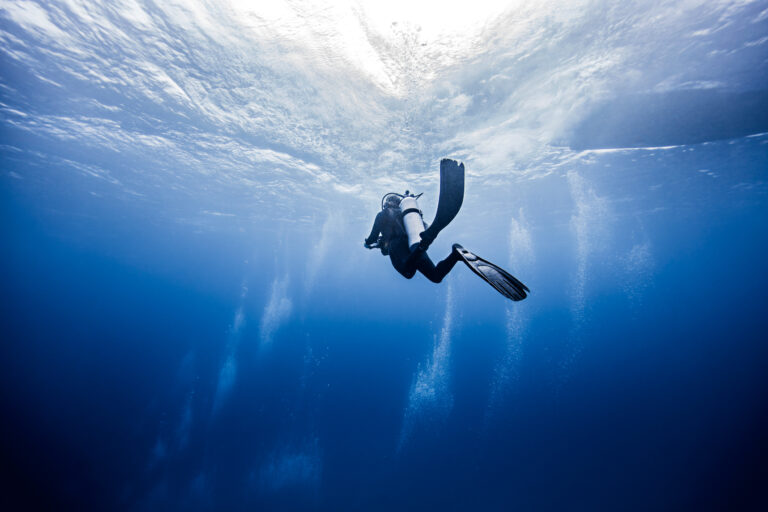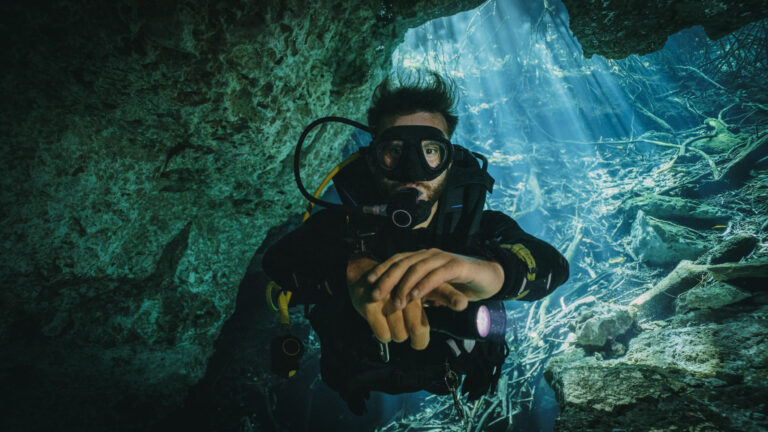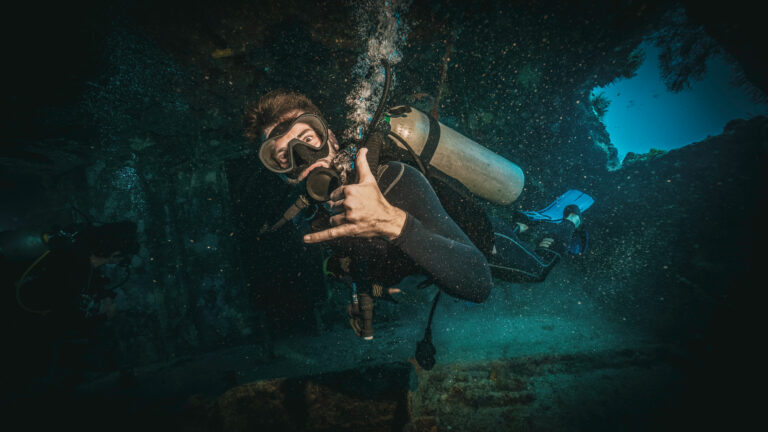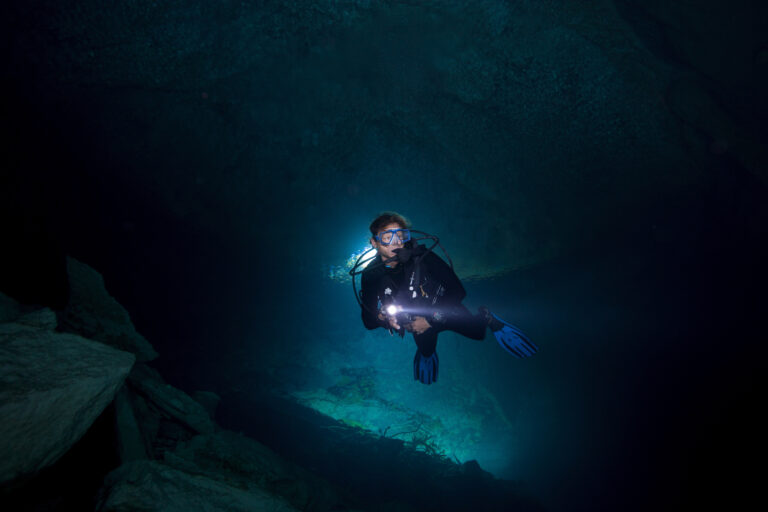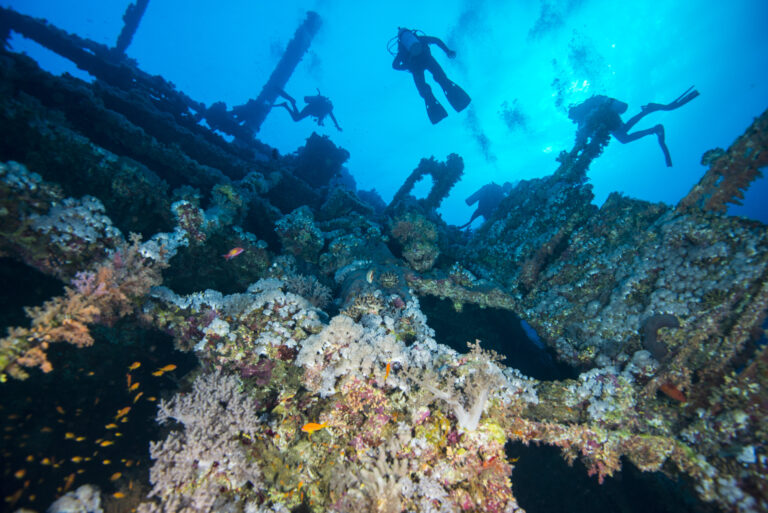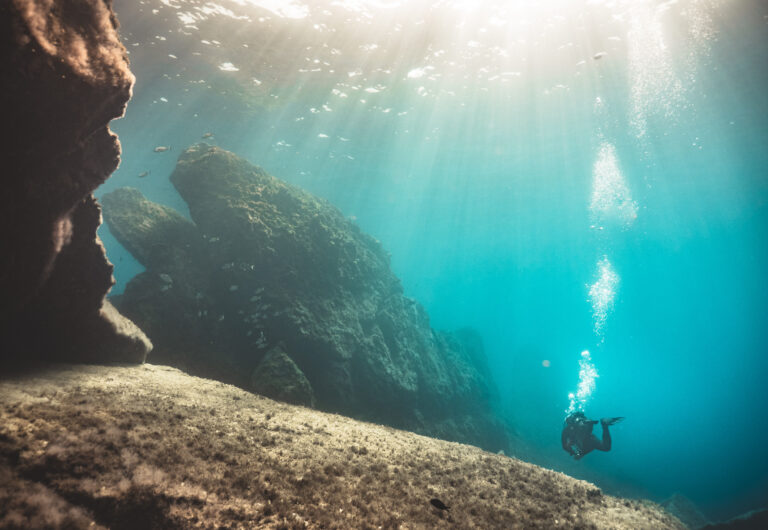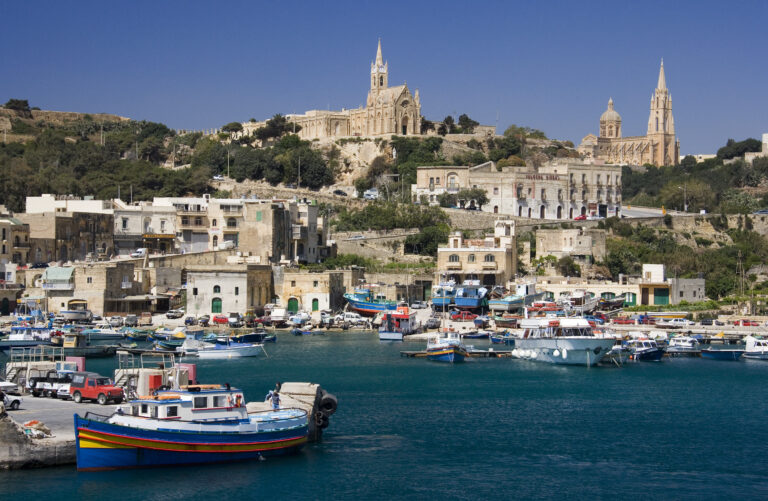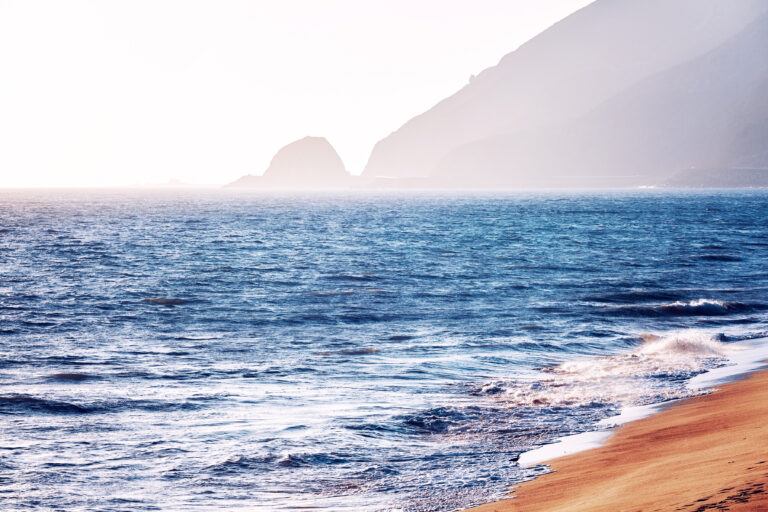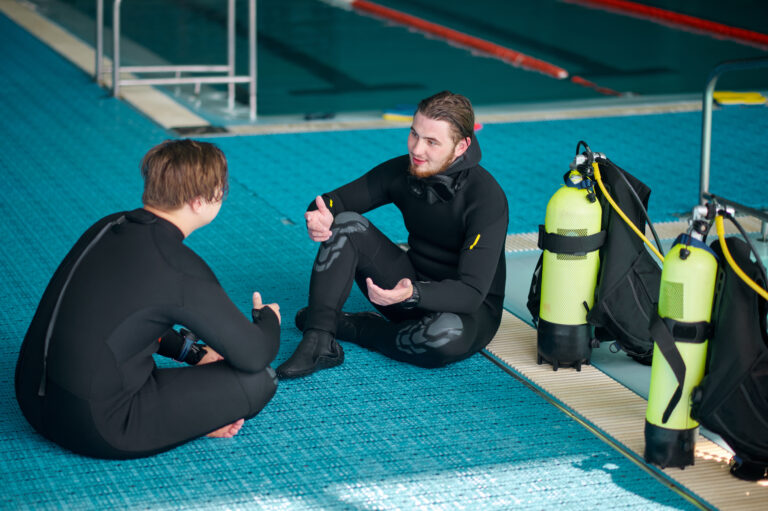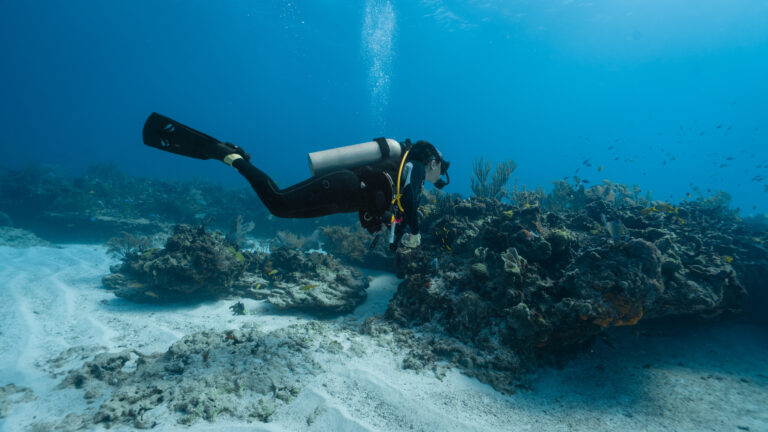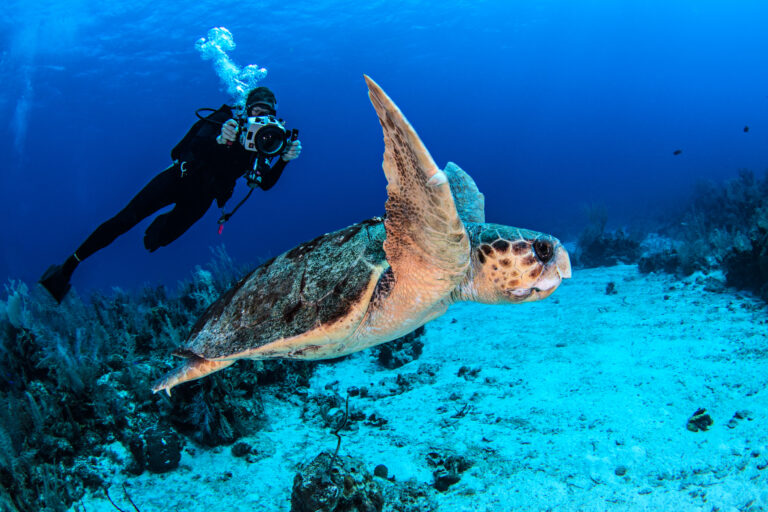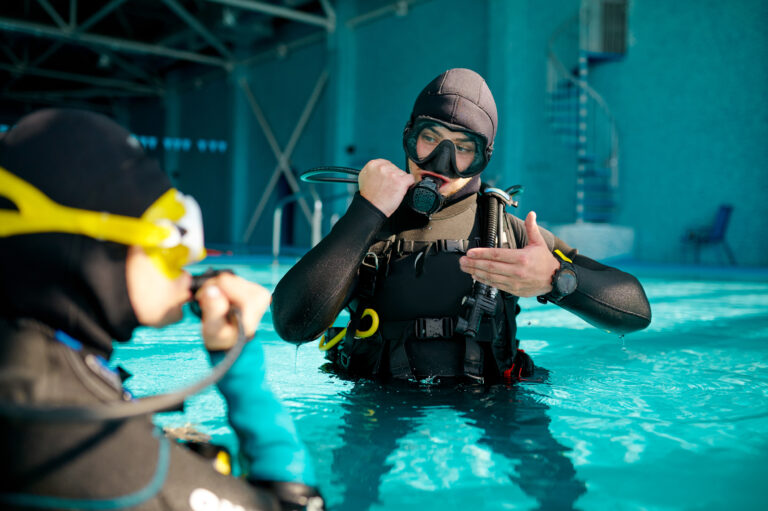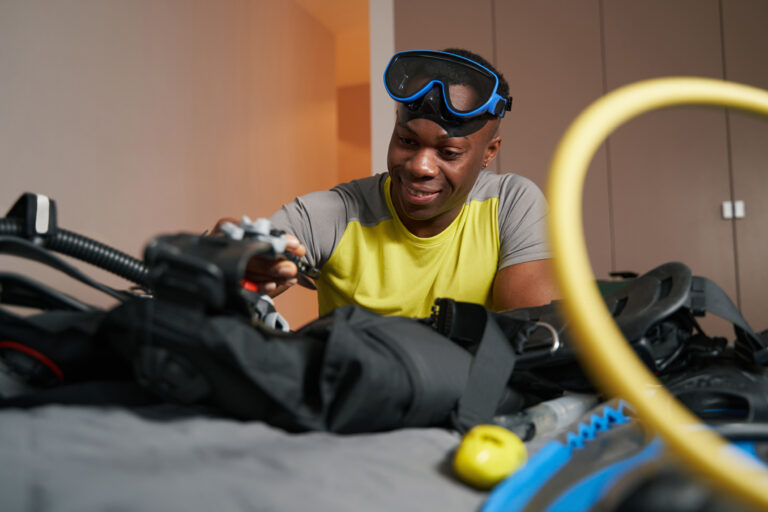SCUBA DIVERS’ TRAVEL GUIDE TO United Arab Emirates
The United Arab Emirates is a fascinating destination for scuba divers who want to explore a diverse and rich underwater world. From the Arabian Gulf to the Gulf of Oman, the UAE offers a variety of dive sites that cater to different levels of experience and interests. Whether you want to see colorful coral reefs, historic shipwrecks, or exotic marine life, you will find something to suit your taste in the UAE. The UAE is also a cultural and modern hub, where you can enjoy the hospitality, cuisine, and attractions of a dynamic and cosmopolitan country. The UAE is a place where tradition and innovation coexist, and where you can discover the beauty and adventure of scuba diving in a unique setting.
LOCATION AND GEOGRAPHY
Nestled along the southeastern corner of the Arabian Peninsula, the United Arab Emirates (UAE) boasts a unique blend of modernity and tradition, with its coastline stretching along the Persian Gulf and the Gulf of Oman. This federation of seven emirates, including well-known Dubai and Abu Dhabi, offers a diverse range of scuba diving experiences, thanks to its geographical positioning. The warm, clear waters of the Persian Gulf are home to artificial reefs, wrecks, and an abundance of marine life, while the east coast facing the Gulf of Oman, particularly around Fujairah, is renowned for its natural coral reefs and richer biodiversity. The UAE’s underwater terrain varies from sandy flats to rocky outcrops, providing habitats for a variety of species. With year-round diving opportunities, the UAE’s location and geography make it a compelling destination for divers seeking to explore the underwater marvels of the Middle East.
VISA AND ENTRY REQUIREMENTS
Before embarking on your underwater adventure in the United Arab Emirates (UAE), it is essential to understand the visa and entry requirements. Most nationalities can obtain a visa on arrival, which allows for a 30-day stay, and can be extended for an additional 30 days. However, it is advisable to check the latest regulations before travel, as visa policies can change. Citizens of the Gulf Cooperation Council (GCC) countries do not require a visa to enter the UAE. Ensure your passport is valid for at least six months from the date of entry. Upon arrival, you may be asked to provide proof of return or onward travel, and some travelers might need to show evidence of sufficient funds for their stay. It’s also important to note that Israeli stamps in passports were previously a concern for entry into the UAE, but following the normalization of relations, this is no longer an issue. Always consult with your local UAE embassy or the official government website for the most current visa information to ensure a smooth entry and an enjoyable scuba diving experience in the UAE’s rich marine environments.
GETTING TO United Arab Emirates
Getting to the United Arab Emirates (UAE) for an unforgettable scuba diving adventure is a straightforward experience, thanks to its well-established position as a global travel hub. The country is served by several international airports, with Dubai International Airport and Abu Dhabi International Airport being the most prominent entry points, offering flights from major cities across the world. Airlines such as Emirates, Etihad Airways, and many other international carriers provide frequent and convenient connections, making the UAE easily accessible. Upon arrival, visitors can take advantage of the country’s modern infrastructure, with options like taxis, car rentals, and an extensive road network to reach the coastal areas where diving is prominent. Whether you’re aiming for the coral reefs of Fujairah on the Gulf of Oman or the rich marine life and wrecks off the coast of Dubai and Abu Dhabi in the Persian Gulf, the UAE’s efficient transport systems ensure that the underwater wonders are just a short journey away from the moment you land.
BEST TIME TO DIVE
The United Arab Emirates (UAE), with its warm, clear waters, is a year-round scuba diving destination, but the best time to dive is from late October to April when the weather is cooler and more comfortable. During these months, the water temperature ranges from 22°C to 28°C (72°F to 82°F), providing a pleasant underwater experience without the intense heat that can affect surface intervals in the summer months. Visibility is generally good throughout the year, but the winter and spring months often offer the clearest conditions, especially in the Arabian Gulf, where plankton blooms are less frequent. Divers can explore a variety of marine environments, from the coral reefs of the east coast around Fujairah to the intriguing wrecks and artificial reefs near Dubai and Abu Dhabi. Keep in mind that while summer offers warmer waters, the surface temperatures can soar above 40°C (104°F), making the overall experience less comfortable, especially when donning and doffing gear.
ACCOMMODATION OPTIONS
In the United Arab Emirates, a nation renowned for its opulent hospitality, scuba divers can find a wide array of accommodation options to suit every preference and budget. From the lavish resorts of Dubai and Abu Dhabi, offering private beaches and quick access to the Persian Gulf’s underwater wonders, to the more secluded, dive-centric lodgings in Fujairah, where the Indian Ocean’s rich marine life awaits, there is something for everyone. Many accommodations, particularly in coastal areas, cater specifically to divers, providing amenities such as on-site dive centers, equipment rental services, and dedicated rinse tanks for gear. For those seeking a more immersive experience, liveaboard options are available, allowing divers to wake up at different dive sites each day. Budget-conscious travelers need not worry, as there are numerous guesthouses and mid-range hotels that offer comfortable stays without breaking the bank, often with dive package deals to make the most of your underwater adventure in the UAE.
DIVE OPERATORS AND DIVE SHOPS
In the shimmering waters of the United Arab Emirates (UAE), a diverse array of dive operators and shops await to cater to the needs of underwater enthusiasts. From the bustling cityscape of Dubai to the serene shores of Fujairah, the UAE’s dive industry is well-equipped to offer both novice and experienced divers a gateway to the Gulf’s aquatic treasures. Operators in the region pride themselves on high standards of safety, quality equipment, and knowledgeable staff, many of whom are multilingual to serve an international clientele. Whether you’re looking to explore the vibrant coral reefs, delve into the mysteries of sunken wrecks, or even experience the unique thrill of shark diving, these establishments provide a range of services including PADI certification courses, guided dive tours, and personalized dive packages. With the convenience of on-site facilities, such as gear rental and fill stations, alongside the luxury of warm Arabian hospitality, dive shops in the UAE ensure a seamless and memorable underwater adventure.
TRANSPORTATION WITHIN United Arab Emirates
In the United Arab Emirates (UAE), a country renowned for its luxurious amenities and modern infrastructure, transportation options are plentiful and convenient for scuba divers looking to explore the underwater wonders. Within the country, divers can easily travel between dive sites using a variety of modes. The road network is extensive and well-maintained, with car rentals and taxis readily available for those who prefer private transport. For longer distances, domestic flights connect major cities, while coaches and buses offer comfortable and economical alternatives. In coastal areas, particularly in Dubai and Abu Dhabi, water taxis and private boat charters can provide direct access to prime diving locations, allowing divers to not only travel efficiently but also enjoy the scenic coastline. Public transportation, such as the Dubai Metro, is another option, although reaching specific dive shops or marinas may require additional taxi or bus rides. Regardless of the chosen mode, the UAE’s transportation system is designed to facilitate smooth and swift travel, ensuring that divers spend less time in transit and more time submerged in the Gulf’s aquatic splendor.
CURRENCY AND PAYMENT METHODS
In the United Arab Emirates (UAE), the official currency is the Emirati Dirham (AED), which is pegged to the US dollar at a rate of approximately 3.67 AED to 1 USD. Cash is widely accepted and easily accessible through ATMs found across the country, including in areas popular with scuba divers such as Dubai, Abu Dhabi, and Fujairah. Credit and debit cards, particularly Visa and MasterCard, are also commonly used for transactions, including dive shop fees, equipment rentals, and tour bookings. However, it’s advisable to carry some cash for smaller purchases or in the unlikely event that electronic payment systems are temporarily unavailable. When planning your scuba diving adventure in the UAE, it’s worth noting that bargaining is customary in local markets but less so in established dive shops and professional service providers. Always ensure you understand the currency conversion rates and check for any additional fees or surcharges when using cards, especially if they are issued by a foreign bank.
LANGUAGE AND COMMUNICATION
In the United Arab Emirates (UAE), a country known for its opulent cities and rich cultural tapestry, the official language is Arabic. However, given its status as a global business hub and a melting pot of cultures, English is widely spoken and understood, particularly within the scuba diving community. Dive operators, instructors, and guides are typically multilingual, proficient in English and often other languages such as Hindi, Urdu, and Tagalog, reflecting the diverse workforce of the region. Communication underwater, as with any dive location, transcends spoken language, relying on the universal language of hand signals to convey messages such as dive depth, air supply, and potential hazards. It’s important for divers to familiarize themselves with these signals during their pre-dive briefings to ensure a safe and enjoyable experience exploring the UAE’s underwater wonders, including the vibrant coral reefs of the Arabian Gulf and the intriguing wrecks off its coast.
LOCAL CULTURE AND ATTRACTIONS
The United Arab Emirates (UAE), a federation of seven emirates, is not only a top destination for underwater enthusiasts but also a vibrant tapestry of local culture and attractions. Above the surface, the UAE offers a fascinating blend of traditional Bedouin heritage and ultra-modern development. Visitors can explore the bustling souks and majestic mosques of Dubai and Abu Dhabi, marvel at the towering skyscrapers, or unwind in luxurious resorts. Cultural attractions such as the Louvre Abu Dhabi and the Dubai Museum offer insights into the region’s rich history and artistic achievements. For a taste of traditional Emirati life, one can visit the Heritage Villages in Abu Dhabi and Dubai, where crafts, camel rides, and cultural performances provide a glimpse into the past. The annual Dubai Shopping Festival and Abu Dhabi’s Formula 1 Grand Prix are modern highlights that draw crowds from around the globe. Whether indulging in world-class shopping, savoring local cuisine, or attending a falconry show, the UAE’s blend of old and new promises a memorable experience beyond the coral reefs and marine life.
CULTURAL ETIQUETTE AND TIPS
When scuba diving in the United Arab Emirates (UAE), it is essential to respect the local customs and traditions, which are deeply rooted in Islamic culture. Dress modestly when not on the beach or at a dive site, covering shoulders and knees, especially when visiting public places or interacting with locals. Public displays of affection should be minimal, and the consumption of alcohol is restricted to licensed venues and private residences. Always ask for permission before taking photographs of people, particularly Emirati women. It is customary to remove your shoes before entering someone’s home, and if you are invited to a meal, it is polite to accept. During the holy month of Ramadan, be mindful of the fasting practices of Muslims; refrain from eating, drinking, or smoking in public during daylight hours. As a diver, ensure that you respect marine life and avoid touching or standing on coral reefs, as environmental conservation is taken very seriously. By showing cultural sensitivity and adhering to local etiquette, you will enrich your diving experience and foster a respectful relationship with your Emirati hosts.
LOCAL LAWS AND REGULATIONS RELEVANT TO TOURISTS
When planning a scuba diving trip to the United Arab Emirates (UAE), it is crucial to familiarize yourself with local laws and regulations to ensure a safe and lawful experience. The UAE has strict rules regarding environmental protection, and divers must avoid disturbing marine life or damaging coral reefs. It is illegal to collect shells, corals, or any form of marine life. Diving is only permitted in designated areas, and divers must be certified; those without certification can only dive with a licensed instructor. Additionally, the UAE enforces conservative dress codes and public behavior standards, which also apply to beach areas and boats. Alcohol consumption is regulated, and it is advisable to consume it only in licensed venues. Always carry identification, as authorities may request it, and be aware that photographing government buildings, military installations, and local people without consent is prohibited. Failure to adhere to these regulations can result in hefty fines or more severe legal consequences. It is recommended to check with local dive operators for any recent changes in regulations before your dive.
SAFETY TIPS AND EMERGENCY CONTACTS
When scuba diving in the United Arab Emirates (UAE), safety should be your utmost priority. Always dive within your certification limits and ensure that your equipment is well-maintained and appropriate for the conditions. Due to the UAE’s warm waters, dehydration is a concern, so stay hydrated and protect yourself from the sun. It’s crucial to be aware of local marine life, such as jellyfish and sea urchins, and to maintain a respectful distance. Before diving, familiarize yourself with the emergency procedures of your dive operator and ensure you know how to use the available safety equipment, including surface marker buoys and emergency signaling devices. In case of an emergency, the primary contact is the UAE Coast Guard, which can be reached at +971 4 345 0520. Additionally, the nearest hyperbaric chamber should be identified prior to diving; these are located at facilities such as the Dubai Police Academy and Al Mafraq Hospital in Abu Dhabi. Always carry a means of communication, and ensure that you have the contact information for local emergency services programmed into your phone. Remember, safe diving practices and awareness of emergency protocols are key to enjoying the underwater beauty of the UAE without incident.
HEALTH AND TRAVEL INSURANCE
When planning a scuba diving trip to the United Arab Emirates, it is crucial to consider health and travel insurance that covers diving-specific incidents. The UAE boasts some of the Persian Gulf’s most intriguing dive sites, including coral reefs, intriguing wrecks, and a rich marine life. However, diving always carries inherent risks, such as decompression sickness or equipment malfunctions. Therefore, divers should ensure their insurance includes coverage for hyperbaric treatment and emergency medical evacuation, which can be costly without proper insurance. Additionally, given the UAE’s high standard of healthcare, medical treatment can be expensive for tourists. It is advisable to check that your policy covers local healthcare costs and repatriation in the event of a serious illness or injury. Always carry proof of your insurance and understand the procedure for making a claim, as some policies require upfront payment while others may offer direct billing. Remember, a comprehensive insurance plan allows you to explore the underwater wonders of the UAE with peace of mind.

